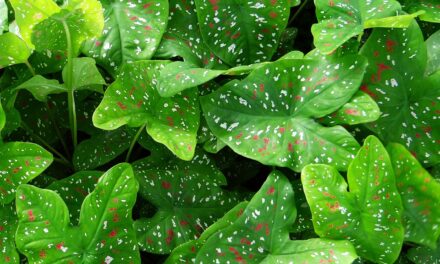The nickname “The Garden State” for New Jersey has a history that is often traced back to a speech by Abraham Browning, a prominent New Jersey lawyer and politician, in the late 19th century.
However, the exact origins of the nickname are not definitively documented and several theories exist regarding its origin.
Here’s a look at how New Jersey came to be known as “The Garden State”:
Table of Contents
Theories Behind the Nickname
Abraham Browning’s Speech
Abraham Browning is widely credited with coining the term during a speech at the Philadelphia Centennial Exposition in 1876.
Browning compared New Jersey to a barrel with both ends open and described it as filled with garden produce from its rich and fertile lands, thus giving it the moniker “The Garden State.”
Agricultural Abundance
New Jersey’s fertile land and favorable climate made it an ideal location for agriculture.
The state has historically been a significant producer of fruits and vegetables, supplying large urban centers like New York City and Philadelphia with fresh produce. This agricultural heritage and productivity likely contributed to the adoption of the nickname.
Legislative Confirmation
The nickname became officially recognized when it was included on New Jersey license plates in the 1950s.
Despite some opposition, Governor Alfred Driscoll approved the use of “The Garden State” on license plates, cementing the nickname’s association with New Jersey.
Agricultural Contributions
Diverse Crops
New Jersey’s farms produce a wide variety of crops, including tomatoes, corn, blueberries, cranberries, and peaches.
The state is known for its high-quality produce, which has contributed to its reputation as a “garden state.”
Historic Farms and Gardens
The state boasts numerous historic farms and botanical gardens, such as the Frelinghuysen Arboretum, Duke Farms, and the Presby Memorial Iris Gardens.
These sites celebrate New Jersey’s rich agricultural history and its ongoing commitment to horticulture.
Modern Recognition
Economic Impact
Agriculture continues to be an important part of New Jersey’s economy.
The state’s agricultural sector includes both traditional farming and modern agribusiness, ensuring that the legacy of being “The Garden State” remains relevant today.
Educational and Community Programs
New Jersey promotes its agricultural heritage through various educational programs and community initiatives, encouraging residents to engage in gardening, farming, and sustainable practices.
Fun Facts
- Jersey Tomatoes: Known for their flavor, Jersey tomatoes are a celebrated product of the state’s agriculture.
- Blueberries: New Jersey is one of the top producers of blueberries in the United States.
- Cranberries: The state is also a major producer of cranberries, and cranberry bogs are common in the Pine Barrens region.
Q&A
Q: Why is New Jersey called “The Garden State”?
A: The nickname is attributed to Abraham Browning’s speech in 1876, where he highlighted New Jersey’s agricultural abundance. The state’s rich agricultural history and production of diverse crops also contribute to this moniker.
Q: What are some famous agricultural products from New Jersey?
A: New Jersey is known for its tomatoes, corn, blueberries, cranberries, and peaches, among other crops.
Q: How did “The Garden State” nickname become official?
A: The nickname became official when it was included on New Jersey license plates in the 1950s, with the approval of Governor Alfred Driscoll.
Q: What role does agriculture play in New Jersey’s economy today?
A: Agriculture remains a significant part of New Jersey’s economy, with modern agribusiness and traditional farming contributing to the state’s economic health.
Q: What are some must-visit farms or gardens in New Jersey?
A: The Frelinghuysen Arboretum, Duke Farms, and the Presby Memorial Iris Gardens are notable sites celebrating New Jersey’s horticultural heritage.
Understanding New Jersey’s agricultural sector’s rich history and ongoing contributions reveals why the state proudly bears the nickname “The Garden State.”
This heritage continues to thrive, reflecting the state’s enduring connection to its fertile lands and agricultural roots.





